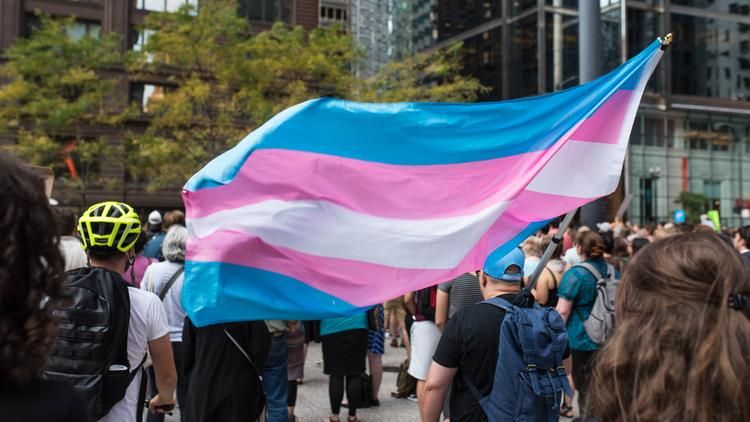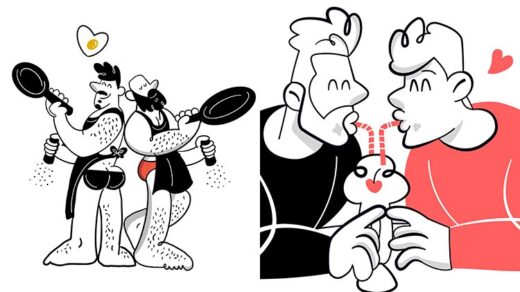Trans Activist Tells the LGBQ Community: ‘Show Up for Us’
Author: Nikole Parker

2021 is now officially the deadliest year on record for transgender people, with 48 known deaths this year — many of whom are Black and Latinx transgender women. How many more have to happen before people notice?
My name is Nikole Parker. I’m the director of transgender equality for Equality Florida, the state’s largest LGBTQ+ civil rights organization, and an Orlando native. I am also a transgender woman and, frankly, I’m scared. With violence against the community escalating, a voice in the back of my mind begs the heartbreaking question: Do I deserve to die just because my gender identity doesn’t align with your views? As we mark Transgender Day of Remembrance today, a day we as the community come together to honor those we lost to anti-transgender violence, an overwhelming sense of hopelessness fills my soul.
I knew I was transgender at a young age. I didn’t have the words to articulate it at the time, but my actions and expressions said it all. At the age of 15, I “came out“ and at the age of 19, I left my childhood home to transition. I haven’t been a stranger to violence along the journey and have experienced things that I wouldn’t wish on anyone. In 2014, I was raped at gunpoint — a moment I thought I was going to lose my life. I begged for him to stop as he shouted, “I’ll shoot up this f***** room if you don’t hold still.” I lay on the bed, frozen with fear, as he took a swig of Remy Martin, kissed me on my forehead, and told me to “keep this between us.” I didn’t share this part of my story for many years because I blamed myself for being in a vulnerable situation. But I’m sharing it now in the hopes that it will help others see the urgency of this crisis. In truth, I could easily have lost my life that night just like so many others in the trans family. Sexual violence happens often in the transgender community, committed by perpetrators empowered by the assumption that we won’t tell anyone. And that if we did, no one would believe us.
It’s true: Violence and sexual abuse are not exclusive to the transgender community. People of all identities experience them every day. But the disproportionate rate of violence my community faces, particularly trans women of color, is staggering. And should stop society in its tracks. Horrifyingly often, those who experience violence and abuse don’t live to tell their stories. Those of us who do rarely have the courage to come forward for fear of not being believed or facing transphobia in response. Add that to strained relationships between the transgender community and law enforcement, who often view this crisis through their own biases about the transgender community, and the result is rampant transphobic violence with too few outlets for justice. After surviving my own assault, I feared the judgment that would come from a review of my unchanged documents and worried that I would be looked at as a “freak” who put herself in a bad situation. Where others would be treated with humanity, my trauma would be seen as deserved.
That is why I do the work that I do: advocating for those who have been silenced and for those who feel they can’t use their voices. I’m candid about my story because the first step to ending the scourge of violence against people like me is understanding our lived experiences. I’ll be honest, despite our progress as a society, the setbacks are disheartening. As political divisions deepen and anti-transgender bills become lightning rods for the political ambitions of cynical lawmakers, we witness daily reminders that transgender people aren’t yet seen as human.
But we are. Transgender people are human. We have hopes, dreams, aspirations, and fears. We deserve to be protected like everyone else. We deserve to live full, happy lives. We are your neighbors, family members, colleagues, and friends. Let this Transgender Day of Remembrance be a moment of growth. If you don’t understand our community, ask questions. Befriend a transgender person. Do research. Listen. Learn.
Education isn’t just needed for our heterosexual and cisgender peers, it’s needed in our own community as well. I often say that the T in LGBTQ+ is silent. Transgender folks are the first to show up and fight for the rights and dignities of our community: Stonewall 1969. Trans women of color started the movement that changed the course of everything for us. But when it’s time for folks to show up for us, there’s still little to no attendance. And a fundamental misunderstanding about what it’s like to be trans in America is pervasive. We’re all in this together, and in a time of crisis for trans folks, we need our LGBQ family to show up for us. Protect us like we protect you. Fight for us like we fight for you. Do I deserve to die because my gender identity doesn’t align with your views or you don’t understand what it’s like to walk in my shoes? I hope the answer is no.
Nikole Parker is the director of transgender equality for Equality Florida, the state’s largest LGBTQ+ civil rights organization.
Original Article on The Advocate
Author: Nikole Parker





